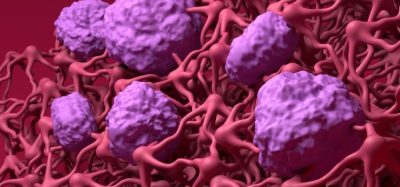Gilead reveals positive data for potential first-line adenocarcinoma treatment
Posted: 7 November 2023 | Catherine Eckford (European Pharmaceutical Review) | No comments yet
The only Fc-silent anti- T-cell immunoreceptor with Ig and ITIM domains (TIGIT) antibody in Phase III for upper GI adenocarcinomas could be the first to market for these cancers.


Positive results for a combination treatment using the first Fc-silent investigational monoclonal antibody in pivotal clinical trials that is designed to block and bind to the T-cell immunoreceptor with Ig and ITIM domains (TIGIT), have been announced. The treatment is being evaluated in patients with upper GI adenocarcinomas. Domvanalimab plus the antibody zimberelimab and chemotherapy showed encouraging overall response rate and six-month progression-free survival (PFS) rate results in a preliminary analysis from Arm A1 of the ongoing Phase II study EDGE-Gastric study.
Domvanalimab
According to Gilead Sciences and Arcus Biosciences, domvanalimab has demonstrated complete receptor coverage on all TIGIT-expressing peripheral leukocytes. The new Phase II data, in addition to existing studies, add to evidence that domvanalimab has a differentiated safety and tolerability profile relative to published data from studies with Fc-enabled anti-TIGIT antibodies.
Preliminary results from Arm A1 of the EDGE-Gastric study
The treatment regimen with domvanalimab showed an overall response rate of:
- Eighty percent in patients with PD-L1-high tumours
- Forty six percent in patients with PD-L1-low tumours
- Fifty nine percent for patients overall
- Two confirmed complete responses in patients were reported.
Gilead shared that in the trial, the six-month landmark PFS rate was 93 percent for patients with PD-L1-high tumours, 68 percent for patients with PD-L1-low tumours and 77 percent for patients overall. Median PFS was not reached and mature PFS data are expected in the second half of next year.
At the data cutoff in September 2023, 41 patients were enrolled and treated with a median follow-up of 8.1 months; 24 patients (59 percent) remained on study treatment at time of data cutoff, Gilead noted.
“The preliminary data from the EDGE-Gastric study underscore the potential role of dual anti-TIGIT and anti-PD-1-containing regimen in the treatment of gastroesophageal cancer where front-line chemotherapy with anti-PD-1 blockade is currently the standard,” stated Dr Yelena Janjigian, Chief Attending Physician of the Gastrointestinal Medical Oncology Service, Memorial Sloan Kettering Cancer Center, and a principal investigator for the EDGE-Gastric study.
These early data “indicate the potential for the anti-TIGIT, domvanalimab-based therapy to improve upon anti-PD-1 and chemotherapy in this setting, with a similar safety profile to anti-PD-1 and chemotherapy,” Dr Janjigian added.
The preliminary data from Arm A1 of the Phase II EDGE-Gastric study are being presented during the 2023 American Society of Clinical Oncology (ASCO) Monthly Plenary Series, and support the ongoing Phase III study, STAR-221, in unresectable or metastatic upper GI cancers.
Related topics
Antibodies, Big Pharma, Biologics, Biopharmaceuticals, Clinical Development, Clinical Trials, Drug Development, Industry Insight, Research & Development (R&D), Therapeutics
Related organisations
Related drugs
Related people
Related diseases & conditions
adenocarcinoma, Cancer, esophageal adenocarcinoma, gastroesophageal junction adenocarcinoma, metastatic gastric adenocarcinoma









